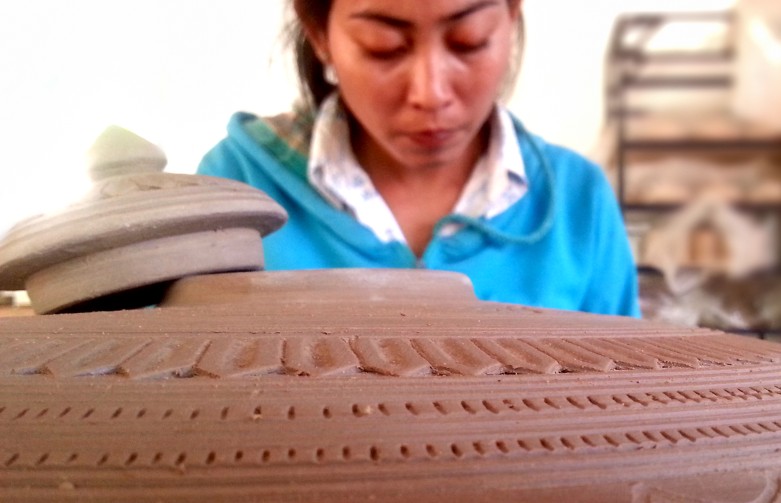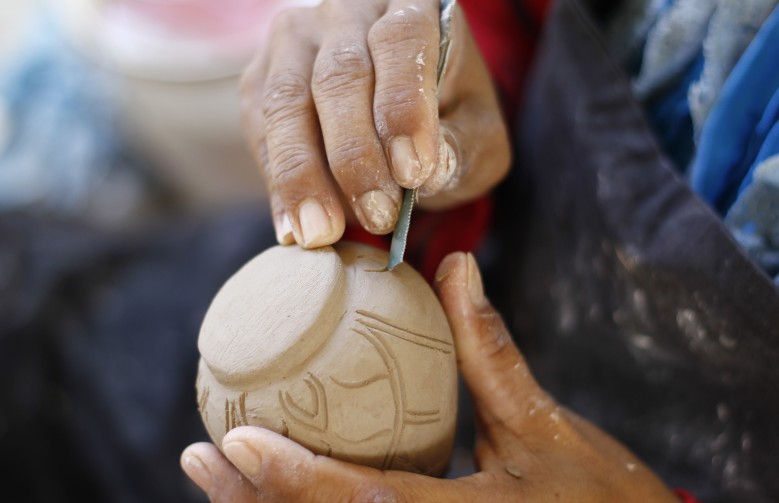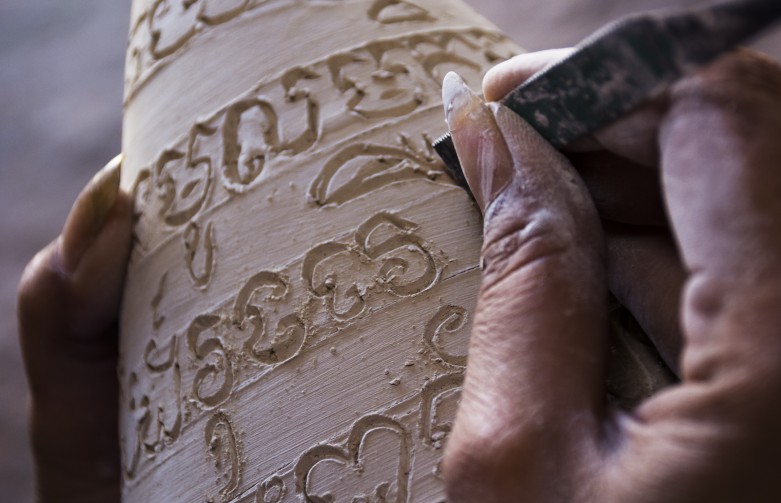
Empathy is a core aspect of contemporary Khmer ceramics art, as today’s artists strive to connect with ancient Khmer culture and create pieces that resonate with modern audiences.
Ancient Khmer ceramics art was an essential part of the Khmer Empire. The empire, which spanned a vast area including Cambodia, Thailand, Vietnam, and Laos, was renowned for its art and architecture. The ceramics produced during this period were both decorative and utilitarian, used for ceremonial purposes as well as for everyday tasks like cooking and serving food.
Today, contemporary Khmer ceramics artists aim to create pieces that honor the past while speaking to contemporary audiences. These artists seek to convey the history, traditions, and emotions of the ancient Khmer people through their work. To do this effectively, contemporary Khmer ceramics artists must have empathy.
Empathy is the ability to understand and share the feelings of another person. In the context of art, empathy means putting yourself in the shoes of the artist and understanding their motivations. It is also about being able to relate to the messages and emotions conveyed by a piece of art.
For contemporary Khmer ceramics artists, empathy is crucial in understanding the ancient Khmer people and the significance of their ceramics. These artists must be able to relate to the struggles and triumphs of their ancestors and communicate their feelings through their work.
One crucial aspect of empathy in contemporary Khmer ceramics art is the use of traditional techniques. These techniques have been passed down for generations and are a vital link between the artists of the present and the ancient Khmer people. By using these ancient techniques, contemporary Khmer ceramics artists show respect for their forebears and connect with the past.
Another way that contemporary Khmer ceramics artists show empathy is through the themes and motifs they use in their work. Many of these artists draw inspiration from ancient Khmer culture, including its mythology, religion, and daily life. By incorporating these themes and motifs into their work, contemporary Khmer ceramics artists create pieces that resonate with modern audiences while honoring the ancient Khmer people.

One example of an artist who uses empathy in their work is Yary Livan. Livan was born in Cambodia and fled to the United States during the Khmer Rouge regime. While living in the US, Livan began practicing traditional Khmer ceramics techniques and eventually became a master ceramic artist.
Livan’s work is heavily influenced by his experiences living in Cambodia and his connections to the ancient Khmer people. He uses traditional Khmer ceramics techniques to create pieces that honor the past while speaking to contemporary audiences. One of his notable works is a series of vases that depict scenes from ancient Khmer mythology. These vases are beautiful and intricate, yet they also convey the power and majesty of the gods and goddesses of the Khmer pantheon.

In conclusion, empathy is a crucial aspect of contemporary Khmer ceramics art. By using traditional techniques and drawing inspiration from ancient Khmer culture, contemporary Khmer ceramics artists show respect for their forebears and connect with the past. Through their work, they are able to convey the history, traditions, and emotions of the ancient Khmer people while speaking to contemporary audiences. Contemporary Khmer ceramics art is thus an important link between the past and the present, and it showcases the resilience and creativity of the Khmer people throughout history.
